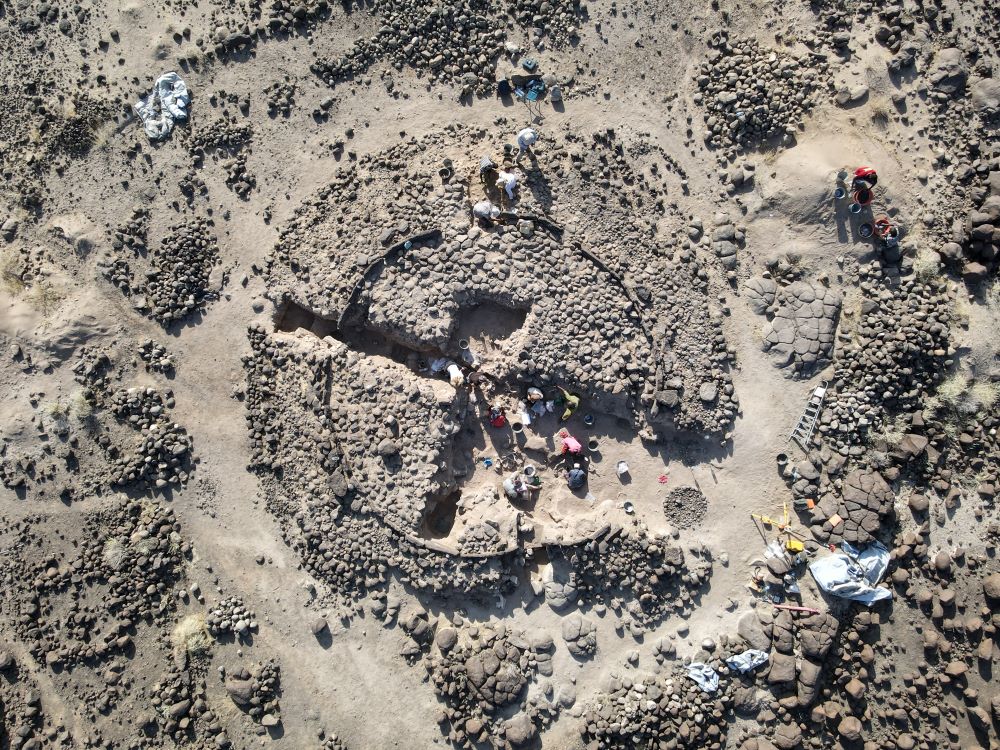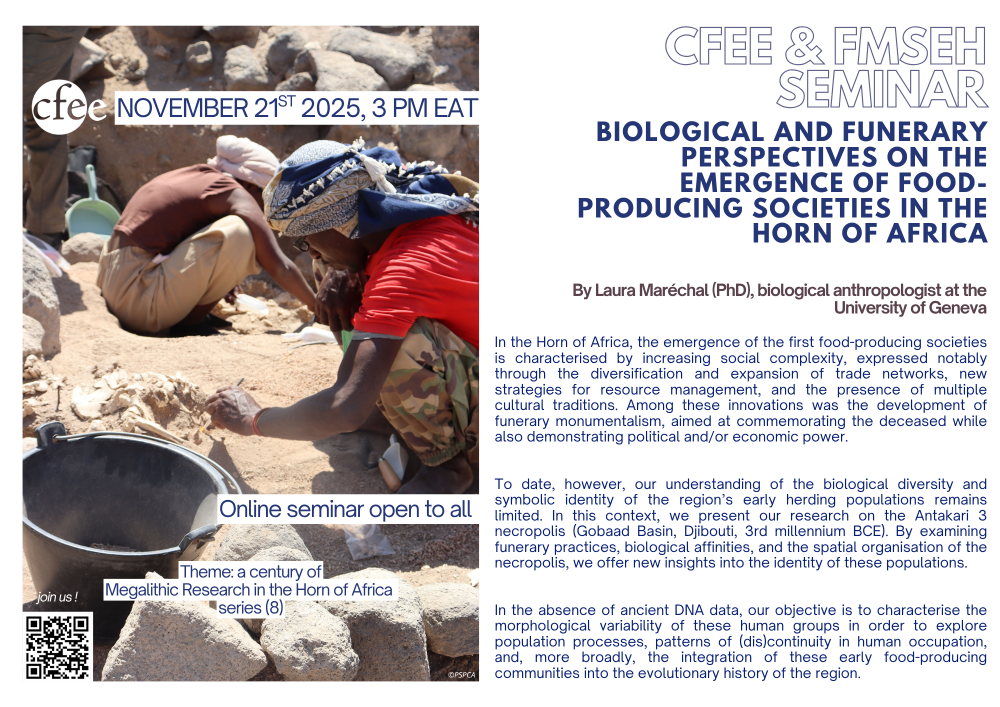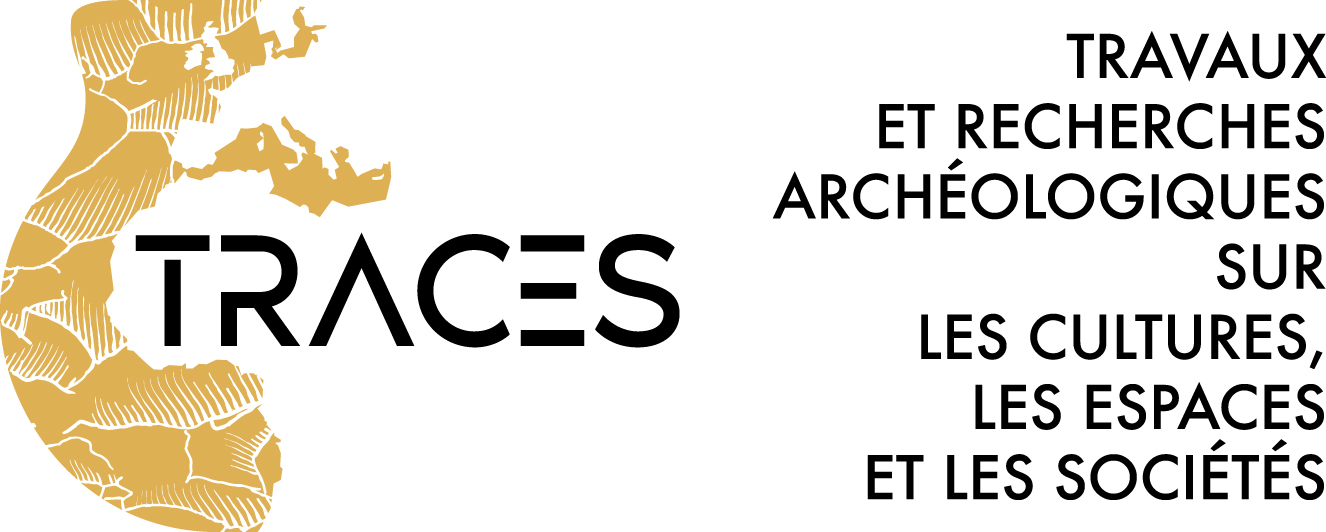-
Partager cette page
Biological and funerary perspectives on the emergence of food-producing societies in the Horn of Africa

Conférence de L. Maréchal
In the Horn of Africa, the emergence of the first food-producing societies is characterised by increasing social complexity, expressed notably through the diversification and expansion of trade networks, new strategies for resource management, and the presence of multiple cultural traditions. Among these innovations was the development of funerary monumentalism, aimed at commemorating the deceased while also demonstrating political and/or economic power.
To date, however, our understanding of the biological diversity and symbolic identity of the region’s early herding populations remains limited. In this context, we present our research on the Antakari 3 necropolis (Gobaad Basin, Djibouti, 3rd millennium BCE). By examining funerary practices, biological affinities, and the spatial organisation of the necropolis, we offer new insights into the identity of these populations.
In the absence of ancient DNA data, our objective is to characterise the morphological variability of these human groups in order to explore population processes, patterns of (dis)continuity in human occupation, and, more broadly, the integration of these early food-producing communities into the evolutionary history of the region.
Zoom Link: https://univ-grenoble-alpes-fr.zoom.us/j/91657460586?pwd=DTRpEzWYmHBUlyOGCVanaJ6F1D1RKt.1







